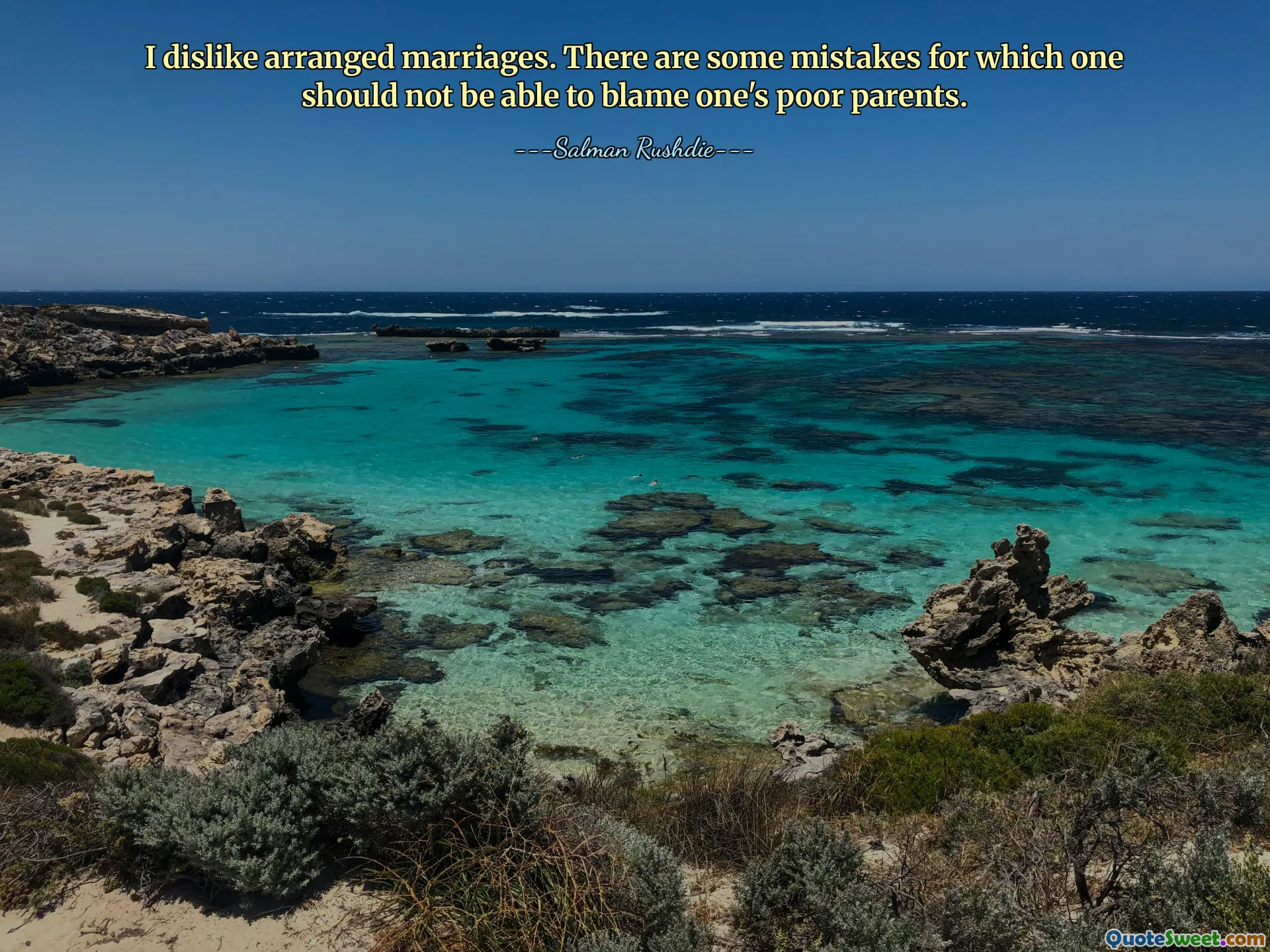
I dislike arranged marriages. There are some mistakes for which one should not be able to blame one's poor parents.
This quote by Salman Rushdie succinctly captures the nuanced disapproval of arranged marriages from a perspective that emphasizes personal choice and accountability. It suggests that while parents typically do their best in making decisions for their children, particularly in traditional practices like arranged marriages, some outcomes might not be ideal. The phrase "some mistakes for which one should not be able to blame one's poor parents" reveals an insightful understanding of the limitations of parental influence, acknowledging that not every life decision's consequence can or should be attributed to one's family.
The quote encourages introspection about autonomy and the fairness in expecting parents to navigate their children's life paths flawlessly. It resonates strongly in cultures where arranged marriages are prevalent and highlights the tension between cultural tradition and individual freedom. Furthermore, it subtly underscores the importance of self-responsibility in the acceptance of life choices, suggesting that not all negative outcomes in arranged marriages can be conveniently assigned to parental decisions.
Overall, it is a profound commentary on human relationships and social systems, elevating the discourse beyond mere dislike to explore the ethical and emotional complexities embedded in arranged marriage practices. It also challenges us to reflect on how society attributes blame and responsibility, urging a balanced understanding of parental roles and individual agency.











